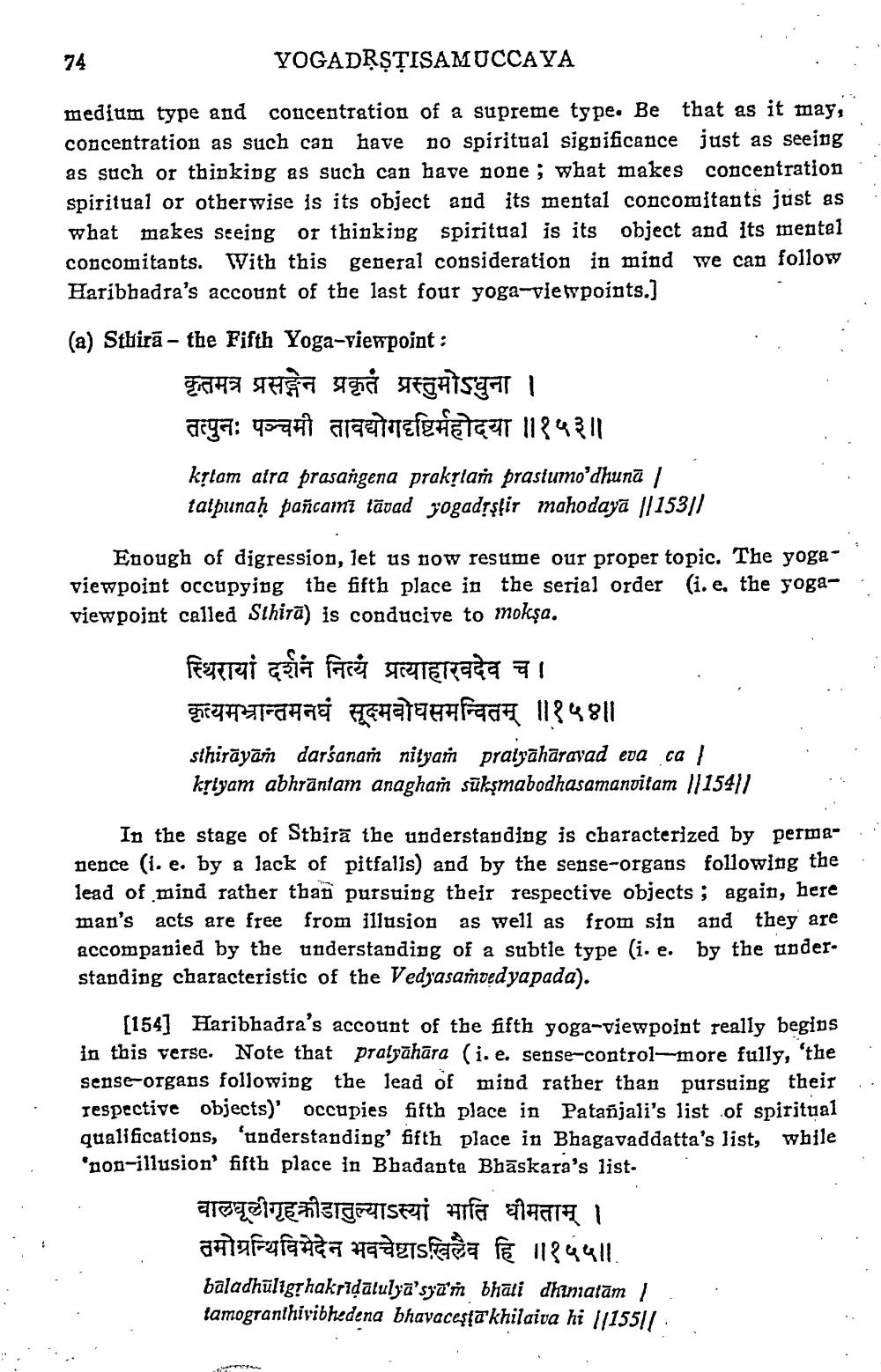________________
YOGADṚṢTISAMUCCAYA
medium type and concentration of a supreme type. Be that as it may, concentration as such can have no spiritual significance just as seeing as such or thinking as such can have none; what makes concentration spiritual or otherwise is its object and its mental concomitants just as what makes seeing or thinking spiritual is its object and its mental concomitants. With this general consideration in mind we can follow Haribhadra's account of the last four yoga-viewpoints.]
74
(a) Sthira- the Fifth Yoga-viewpoint:
कृतमत्र प्रसङ्गेन प्रकृतं प्रस्तुमोऽधुना ।
acya: qatı argeìnefer@dear || 243 |||
kṛtam atra prasangena prakṛtaṁ prastumo'dhunā | tatpunaḥ pañcami tavad yogadṛştir mahodaya ||153||
Enough of digression, let us now resume our proper topic. The yogaviewpoint occupying the fifth place in the serial order (i. e. the yogaviewpoint called Sthira) is conducive to mokşa.
स्थिरायां दर्शनं नित्यं प्रत्याहारवदेव च ।
कृत्यमभ्रान्तमनघं सूक्ष्मबोधसमन्वितम् ॥ १५४ ॥
sthirayam darśanam nityam pratyaharavad eva cal kṛtyam abhrāntam anaghaṁ sūkṣmabodhasamanvitam ||154||
In the stage of Sthira the understanding is characterized by permanence (i. e. by a lack of pitfalls) and by the sense-organs following the lead of mind rather than pursuing their respective objects; again, here man's acts are free from illusion as well as from sin and they are accompanied by the understanding of a subtle type (i. e. by the understanding characteristic of the Vedyasaṁvedyapada).
[154] Haribhadra's account of the fifth yoga-viewpoint really begins in this verse. Note that pratyahāra (i. e. sense-control-more fully, 'the sense-organs following the lead of mind rather than pursuing their respective objects)' occupies fifth place in Patanjali's list of spiritual qualifications, 'understanding' fifth place in Bhagavaddatta's list, while 'non-illusion' fifth place in Bhadanta Bhaskara's list
चालधूटीगृह क्रीडातुल्याऽस्यां भाति धीमताम् । तमोग्रन्थिविभेदेन भवचेष्टाऽखिलैव हि ॥ १५५॥.
baladhuligṛhakriḍatulya'sya'm bhati dhimatām Į tamogranthivibhedena bhavaceşta khilaiva hi [[155]] ·




